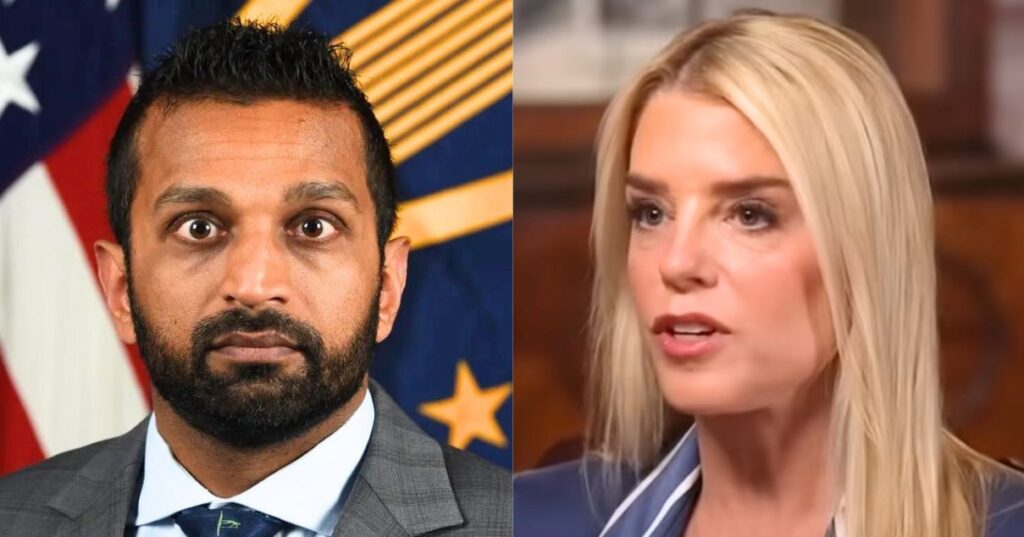DOJ & FBI Conclusion on Epstein

Justice or Just Us? Diddy Acquitted, DOJ Declares “No Epstein Client List”
In a week filled with courtroom decisions and government revelations, two headline-grabbing developments have reignited long-standing suspicions about the justice system and its treatment of the elite.
First, music mogul Sean “Diddy” Combs was found not guilty on all major sex trafficking charges, despite mounting accusations and leaked surveillance footage that shocked the public. Then, in a stunning announcement, the Department of Justice (DOJ) and FBI concluded that there is “no evidence” of a client list, blackmail operation, or foul play in the case of disgraced financier and convicted sex offender Jeffrey Epstein.
For many, these events don’t feel like justice. They feel like a coordinated cover-up happening in real time.
— Ghislaine Maxwell Conviction:
Ghislaine Maxwell was convicted in December 2021 on charges including sex trafficking of minors and conspiracy.
She was sentenced to 20 years in prison.
The trial did not publicly name or charge any individuals who allegedly received trafficked victims, leading to the popular criticism:
> “She was convicted of trafficking girls to no one.”
Diddy Walks Free
Over the past year, Diddy has been the subject of multiple lawsuits involving disturbing allegations of sex trafficking, abuse, and exploitation. The most notable moment came when authorities reportedly obtained video footage showing a violent incident in a hotel hallway — allegedly confirming parts of a 2016 assault accusation.
But despite this and several civil claims, Diddy has now walked free of all major criminal charges, with prosecutors stating there wasn’t enough evidence to proceed. Supporters argue the case lacked credible witnesses willing to testify under oath. Critics, however, see it as another example of a wealthy celebrity escaping accountability, protected by legal teams and industry influence.
—
DOJ and FBI Say: No Epstein Client List, No Blackmail, No Murder
If that weren’t enough to shake public faith, the DOJ and FBI’s recent conclusion on the Epstein case has left many outraged.
After years of speculation — and mounting calls to release names from Epstein’s private flight logs, calendars, and visitor lists — officials now say there is no “client list” tied to criminal conduct. Moreover, they maintain that Epstein’s 2019 death was a suicide, and that no evidence of a blackmail operation has been uncovered.
This announcement follows the 2021 conviction of Ghislaine Maxwell, Epstein’s longtime associate, for trafficking underage girls. Her sentencing confirmed that trafficking occurred — but not who the victims were trafficked to. As countless observers have noted:
> “Maxwell is in prison for trafficking underage girls… to no one?”
The fact that not a single alleged client has been named or prosecuted continues to infuriate the public, especially given the scale and reach of Epstein’s global connections.
—
Is Justice Being Buried?
These developments have deepened a growing belief: that elite perpetrators of child abuse and sex trafficking are being protected, not exposed. While regular citizens would likely face swift legal consequences, it seems that when the powerful are involved, investigations vanish, charges dissolve, and the media moves on.
Many are asking hard questions:
How can a woman be convicted of trafficking minors, yet no recipients of the crimes be identified?
Why are key figures seen in Epstein’s logs and photos never subpoenaed or questioned under oath?
Why was Epstein’s prison security so mysteriously lax in the days before his death?
These aren’t conspiracy theories — they’re unanswered questions, backed by court records, unexplained gaps, and a pattern of institutional silence .
.
—
Final Thoughts
Whether it’s a music icon beating trafficking charges or the government declaring that a notorious sex trafficker had no clients, the message to the public is clear: When it comes to justice, there are rules for us — and exceptions for them.
As Pam Bondi and Kash Patel hint at releasing The Epstein Files, and as survivors and truth-seekers continue to demand transparency, one thing is certain: the fight for accountability is far from over.



Way cool, some valid points! I appreciate you making this article available, the rest of the site is also high quality. Have a fun.
I¦ve recently started a web site, the information you provide on this web site has helped me greatly. Thank you for all of your time & work.